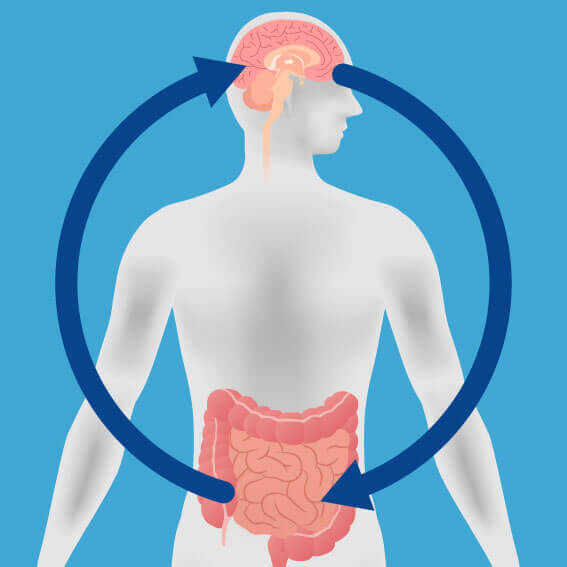Advertising Disclosure
Gut-Brain Connection Is More Important Than You Might Think

Do you know that feeling in your gut, when you’re excited, or scared, or in love? Sometimes you feel butterflies. Or sometimes you have that awful pit in your stomach. And in other times, your stomach literally hurts because of a stressful situation.
Well, these feelings are all coming from your “second” brain – scientifically called the enteric nervous system. Your second brain has got a lot to do with the way you feel.
Research has shown that our gut impacts our brain and vice versa.
Keep on reading to find out more on the gut-brain connection.
What Exactly Is Gut-Brain Connection?

ENS stands for the enteric nervous system and it consists of two layers of nerve cells. These cells line our gastrointestinal tract. The ENS can operate autonomously, but it often communicates with the central nervous system with the help of the vagus nerve.
The vagus nerve is one of the biggest nerves that connect the brain and gut. The vagus nerve is responsible for communication between these two organs. And it allows you to feel that pit in your stomach when you’re emotionally upset.
Pretty impressive, right?
The gut-brain connection needs more research. But so far the experts have definitely shed some light on this famous connection. Here’s what we now know so far.
Our Both Brains Feel

According to the doctors, about 80% of neurotransmitters are produced in our gut. No wonder our gut can dictate how we feel considering neurotransmitters are responsible for the emotions and feelings.
You’ve probably heard of serotonin – “a happiness hormone”? It’s a neurotransmitter that invokes feelings of joy and happiness. And guess what? Much of serotonin is produced in our gut. Interestingly, many foods help produce serotonin.
When we don’t eat clean foods like nuts, seeds, and good quality protein, our gut can’t be happy. And when our gut isn’t happy, it will negatively affect our mood and emotions. Dr. Leigh Frame suggests that diet interventions may improve gut microbiome for treating anxiety.
Furthermore, research has shown that probiotic microbes are beneficial for the health of our gut microbiome. Adding fermented products to your diet could contribute to the production of good bacteria in the microbiome. Probiotics can also be beneficial for our mental health. Namely, research has shown that certain probiotics, such as Bifidobacterium longum NCC3001, can help alleviate anxiety, stress, and depression.
Gut Affects both the Brain and Immune System

Microbes in our gut produce other chemicals as well. These chemicals are called acetate, butyrate, and propionate. Research shows that propionate helps reduce appetite. Butyrate helps form the blood-brain barrier.
Apart from affecting the brain, our gut also seems to affect the immune system. The gut functions like a judge, deciding what passes into our body and what to discharge. In case our gut barrier weakens, bad bacteria (also known as Lipopolysaccharide or LPS) can flow freely into our blood, creating a mess in the body (or should we say brain). High LPS can cause depression and dementia, among other brain disorders.
Conclusion
As mentioned, there’s much more for experts to learn about the gut-brain connection. But, if there’s one thing for sure – it’s that you’d want to keep your gut healthy because this indeed plays a significant role in your well-being. Remember, a happy gut promotes a happy mind.
If you’d like to test your gut microbiome, you can try one of Gut Microbiome Test Kits. This is a great way to learn about your microbiome and your doctor can help point you in the right direction of how to improve your gut microbiome health.





